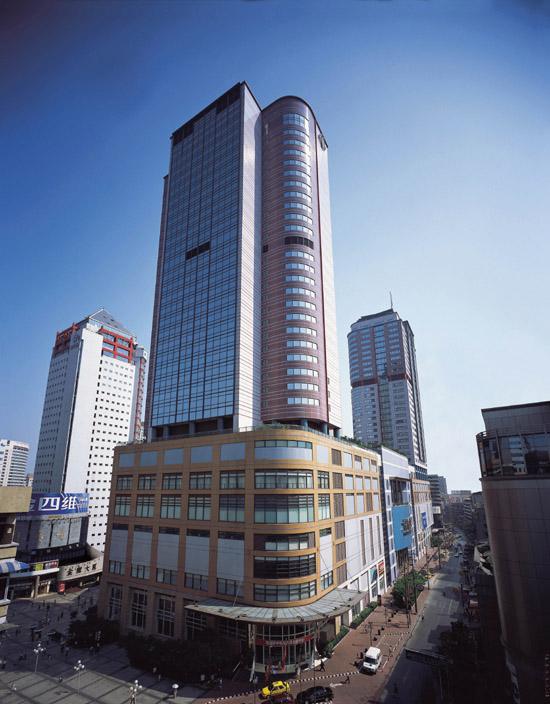Official7托福阅读Passage2 Ancient Rome and Greece文本+题目原文+答案解析【雷哥托福】
2019-01-22 11:51:32 发布 来源:雷哥托福TPO7托福阅读Passage2 Ancient Rome and Greece文本+题目原文+答案解析
Ancient Rome and Greece
There is a quality of cohesiveness about the Roman world that applied neither to Greece nor perhaps to any other civilization, ancient or modern. Like the stone of Roman wall, which were held together both by the regularity of the design and by that peculiarly powerful Roman cement, so the various parts of the Roman realm were bonded into a massive, monolithic entity by physical, organizational, and psychological controls. The physical bonds included the network of military garrisons, which were stationed in every province, and the network of stone-built roads that linked the provinces with Rome. The organizational bonds were based on the common principles of law and administration and on the universal army of officials who enforced common standards of conduct. The psychological controls were built on fear and punishment—on the absolute certainty that anyone or anything that threatened the authority of Rome would be utterly destroyed.
The source of Roman obsession with unity and cohesion may well have lain in the pattern of Rome’s early development. Whereas Greece had grown from scores of scattered cities, Rome grew from one single organism. While the Greek world had expanded along the Mediterranean seas lanes, the Roman world was assembled by territorial conquest. Of course, the contrast is not quite so stark: in Alexander the Great the Greeks had found the greatest territorial conqueror of all time; and the Romans, once they moved outside Italy, did not fail to learn the lessons of sea power. Yet the essential difference is undeniable. The key to the Greek world lay in its high-powered ships; the key to Roman power lay in its marching legions. The Greeks were wedded to the sea; the Romans, to the land. The Greek was a sailor at heart; the Roman, a landsman.
Certainly, in trying to explain the Roman phenomenon, one would have to place great emphasis on this almost instinct for the territorial imperative. Roman priorities lay in the organization, exploitation, and defense of their territory. In all probability it was the fertile plain of Latium, where the Latins who founded Rome originated, that created the habits and skills of landed settlement, landed property, landed economy, landed administration, and a land-based society. From this arose the Roman genius for military organization and orderly government. In turn, a deep attachment to the land, and to the stability which rural life engenders, fostered the Roman virtues: gravitas, a sense of responsibility, pietas, a sense of devotion to family and country, and iustitia, a sense of the natural order.
Modern attitudes to Roman civilization range from the infinitely impressed to the thoroughly disgusted. [■] As always, there are the power worshippers, especially among historians, who are predisposed to admire whatever is strong, who feel more attracted to the might of Rome than to the subtlety of Greece. [■] At the same time, there is a solid body of opinion that dislikes Rome. [■] For many, Rome is at best the imitator and the continuator of Greece on a larger scale. [■] Greek civilization had quality; Rome, mere quantity. Greece was original; Rome, derivative. Greece had style; Rome had money. Greece was the inventor; Rome, the research and development division. Such indeed was the opinion of some of the more intellectual Romans. “Had the Greeks held novelty in such disdain as we,” asked Horace in his epistle, “what work of ancient date would now exist?”
Rome’s debt to Greece was enormous. The Romans adopted Greek religion and moral philosophy. In literature, Greek writers were consciously used as models by their Latin successors. It was absolutely accepted that an educated Roman should be fluent in Greek. In speculative philosophy and the sciences, the Romans made virtually no advance on early achievements.
Yet it would be wrong to suggest that Rome was somehow a junior partner in Greco-Roman civilization. The Roman genius was projected into new spheres—especially into those of law, military organization, administration, and engineering. Moreover, the tensions that arose within the Roman state produced literary and artistic sensibilities of the highest order. It wasno accident that many leading Roman soldiers and statesmen were writers of high caliber.
TPO7托福阅读Passage2 Ancient Rome and Greece题目
Question 1 of 14: Which of the sentences below best expresses the essential information in the highlighted sentence in the passage? Incorrect choices change the meaning in important ways or leave out essential information.
A. The regularity and power of stone walls inspired Romans attempting to unify the parts of their realm.
B. Although the Romans used different types of designs when building their walls, they used regular controls to maintain their realm.
C. Several types of control united the Roman realm, just as design and cement held Roman walls together.
D. Romans built walls to unite the various parts of their realm into a single entity, which was controlled by powerful laws.
Question 2 of 14: According to paragraph 1, all of the following are controls that held together the Roman world EXCEPT
A. administrative and legal systems
B. the presence of the military
C. a common language
D. transportation networks
Question 3 of 14: The phrase “obsession with ” in the passage is closest in meaning to
A. thinking about
B. fixation on
C. interest in
D. attitude toward
Question 4 of 14: According to paragraph 2, which of the following was NOT characteristic of Rome’s early development?
A. Expansion by sea invasion
B. Territorial expansion
C. Expansion from one original settlement
D. Expansion through invading armies
Question 5 of 14: Why does the author mention “Alexander the Great ” in the passage?
A. To acknowledge that Greek civilization also expanded by land conquest
B. To compare Greek leaders to Roman leaders
C. To give an example of Greek leader whom Romans studied
D. To indicate the superior organization of the Greek military
Question 6 of 14: The word “fostered ” in the passage is closest in meaning to
A. accepted
B. combined
C. introduced
D. encouraged
Question 7 of 14: Paragraph 3 suggests which of the following about the people of Latium?
A. Their economy was based on trade relations with other settlements.
B. They held different values than the people of Rome.
C. Agriculture played a significant role in the society.
D. They possessed unusual knowledge of animal instincts.
Question 8 of 14: Paragraph 4 indicates that some historians admire Roman civilization because of
A. the diversity of cultures within Roman society
B. its strength
C. its innovative nature
D. the large body of literature that it developed
Question 9 of 14: In paragraph 4, the author develops a description of Roman civilization by
A. comparing the opinions of Roman intellectuals to Greek intellectuals
B. identifying which characteristics of Roman civilization were copied from Greece
C. explaining how the differences between Roman and Greece developed as time passed
D. contrasting characteristics of Roman civilization with characteristics of Greek civilization
Question 10 of 14: According to paragraph 4, intellectual Romans such as Horace held which of the following opinions about their civilization?
A. Ancient works of Greece held little value in the Roman world.
B. The Greek civilization had been surpassed by the Romans.
C. Roman civilization produced little that was original or memorable.
D. Romans valued certain types of innovations that had been ignored by ancient Greeks.
Question 11 of 14: The word “spheres ” in the passage is closest in meaning to
A. abilities
B. areas
C. combinations
D. models
Question 12 of 14: Which of the following statements about leading Roman soldiers and statesmen is supported by paragraphs 5 and 6?
A. They could read and write the Greek language.
B. They frequently wrote poetry and plays.
C. They focused their writing on military matters.
D. They wrote according to the philosophical laws of the Greeks.
Question 13 of 14: Look at the four squares [■] that indicate where the following sentence could be added to the passage. Where would the sentence best fit?
They esteem symbols of Roman power, such as the massive Colosseum.
A. As always, there are the power worshippers, especially among historians, who are predisposed to admire whatever is strong, who feel more attracted to the might of Rome than to the subtlety of Greece.
B. At the same time, there is a solid body of opinion that dislikes Rome.
C. For many, Rome is at best the imitator and the continuator of Greece on a larger scale.
D. Greek civilization had quality; Rome, mere quantity. Greece was original; Rome, derivative.
Question 14 of 14: Direction: An introductory sentence for a brief summary of the passage is provided below. Complete the summary by selecting the THREE answer choices that express the most important ideas in the passage. Some sentences do not belong in the summary because they express ideas that are not presented in the passage or are minor ideas in the passage. This question worth 2 points.
The Roman world drew its strength from several important sources.
A.Numerous controls imposed by Roman rulers held its territory together.
B.The Roman military was organized differently from older military organizations.
C.Romans valued sea power as did the Latins, the original inhabitants of Rome.
D.Roman values were rooted in a strong attachment to the land and the stability of rural life.
E.Rome combined aspects of ancient Greek civilization with its own contributions in new areas.
F. Educated Romans modeled their own literature and philosophy on the ancient Greeks.
TPO7托福阅读Passage2Ancient Rome and Greece解析
Question 1 of 14
正确答案:C
题目解析:C 这句话看上去很复杂,其实是一个加了很多修饰成分的类比符合句,用so来连接类比(A是XXX样的,B也是XXX样的)。去掉不非主要成分,原句和缩略为:Like the stone of Roman wall, which were held by design and cement, so the roman realm were bonded into an entiy by controls. 这样缩略完以后就非常好选了,正确答案就是C。A中的inspire纯属瞎编乱造;B中的让步也是原句没有的,错;D前半句非常正确,但从句说powerful laws缩小了原文的control,不对。
Question 2 of 14
正确答案:C
题目解析:C 注意这句话有个印刷错误,原句中的so是没有的,否则语法不对。原句的结构是就像石头一样,blablabla,罗马被一大堆东西连起来。A中的inspire纯属瞎编乱造;B中的让步也是原句没有的,错;C正确;D前半句非常正确,但从句说powerful laws缩小了原文的control,不对。
Question 3 of 14
正确答案:B
题目解析:B, obsession with: 着迷于……,所以fixation on着迷于……正确。A是思考;C是对…感兴趣;D是对…的态度。
Question 4 of 14
正确答案:A
题目解析:A EXCEPT题,排除法。A选项与原文第三句说反,原文说是陆地A说是海洋,所以错,选;同时也说明B正确,不选;C中的one original settlement定位至第二句,正确,不选;D的invading armies定位至倒数第三句,注意legion就是armies,所以D对,不选
Question 5 of 14
正确答案:A
题目解析:A 原文说在亚历山大大帝时代,希腊也建立了很强大的陆军,前面一直在说希腊是海洋型军队,但这句的前半句说对比也不是绝对鲜明的,紧接着就给了这个例子,而例子的冒号之前的内容也非常重要,强调两者之间的对立也不是那么完全的,也就是说希腊也有陆上部队,所以答案是A。
Question 6 of 14
正确答案:D
题目解析:foster: 培养,促进。A是接受;B是结合;C是引入;D是鼓励,促进。所以D的encourage正确。对应原文:In turn, a deep attachment to the land, and to the stability which rural life engenders, fostered the Roman virtues: gravitas, a sense of responsibility, peitas, a sense of devotion to family and country, and iustitia, a sense of the natural order.原句说对土地和稳定的依靠怎么样了罗马人的性格,责任感,为国家和家庭贡献,还有天然的秩序性。前者对后者应该是正向作用的,而accept/combine/introduce都没有倾向性,所以encourage正确。
Question 7 of 14
正确答案:C
题目解析:C 以Lantium做关键词定位至第三句,说这个地方的人有一系列与土地相关的性格,既然与土地相关,C就正确;A说反了,原文说经济以土地为主,贸易是不靠土地的;B说反了,那个地方的人就是建立罗马帝国的人; D没说
Question 8 of 14
正确答案:B
题目解析:以historians做关键词定位至第二句:As always, there are the power worshippers, especially among historians, who are predisposed to admire whatever is strong, who feel more attracted to the might of Rome than to the subtlety of Greece.说总有那些强权崇拜者,而且解释说他们崇拜强者,所以这些人崇拜罗马的原因也是这个,答案是B。
Question 9 of 14
正确答案:D
题目解析:D第四段只提到了罗马知识分子的观点,并没有提到希腊知识分子的观点,所以A选项错误。选项B和选项C在第四段并没有提到。在第四段主要通过比较希腊和罗马文化,希腊文化注重质量,罗马文化注重数量;希腊是创造者,罗马是继承者。并且通过罗马知识分子的观点进一步比较两种文明,用以描述罗马文明。所以选项D正确。
Question 10 of 14
正确答案:C
题目解析:C 以人名做关键词定位至最后一句,这句话一开始就有个such,所以上文才是Horace的观点,前面不停说希腊是原创者,罗马只是跟着学,所以答案是C,罗马没什么有价值的东西,A/B都说反了;D不同类型没说
Question 11 of 14
正确答案:B
题目解析:B sphere球体,所以B的area领域正确,原句sphere后的破折号对这个词给出了解释,law,military organization,administration and engineering都是学科或者领域;A能力C联合D模型都不对。
Question 12 of 14
正确答案:A
题目解析:A,以Roman soldiers and statesman做关键词定位至第六段最后一句,说这些人是很有才的作家,然后似乎没答案,但问的是根据第五和第六两段啊,上一段还没看,上段倒数第二句说受过良好教育的罗马人都精通希腊语,所以上面说的那些有才的作家肯定也精通了,A正确;没找到的话用排除法,其他三项都没说
Question 13 of 14
正确答案:B
题目解析:B两个过渡点,代词they和名词power ,根据power只有A和B有可能对,而且they之前必须有那些崇拜power的人,放B的话有historians,放A的话没有,A排除,正确答案B。
Question 14 of 14
正确答案:ADE
题目解析:A.D.E numerous选项对应第一段前两句,正确 the Roman military选项原文没说,不选 Romans valued sea power选项与原文第二段和第三段的第一句的内容相反,不选 Roman values选项对应原文第三段首句,正确 Rome combined选项对应原文第六段第二句,正确 educated Romans选项原文没说,不选
全套TPO阅读原文+题目文本+答案解析手册(合计1300页文档),在雷哥托福微信公众号获取
雷哥托福上课详情请咨询老师
1、请联系官方QQ:2250281936;
2、请联系官方个人微信号:toefl12345;
3、请咨询官方电话:400-6021-727;
【使用提示】
1、雷哥托福在线直播课,不限地域,全球考生均可报名参与。
2、获取更多托福信息,请关注雷哥托福微信公众号:toeflgo
 直播
直播



















 分享成功
分享成功









 托福预测|2020年1月11日&12日托福考试机经预测最全资料版!
托福预测|2020年1月11日&12日托福考试机经预测最全资料版!
























草莓小菇凉:说的非常好,十分有道理,棒棒棒!
06-08 15:44:55